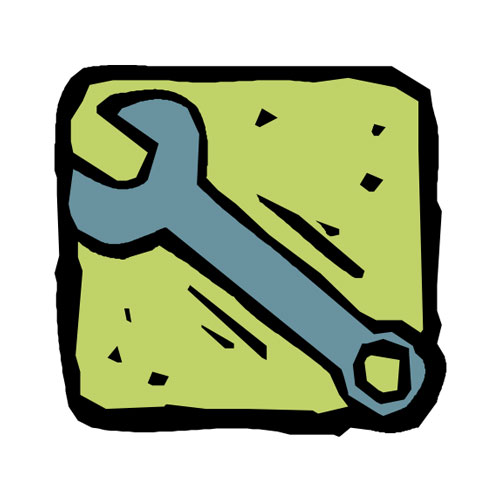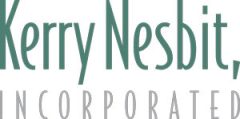
Nuts & Bolds—Managing Basic Affiliate Operations
Whether your affiliate has five members or 50, the basics of organizing and operating your affiliate effectively are the same. On a practical level, we recommend you approach affiliate operations as if you were running a business. Naturally, the state office staff will support your efforts every step of the way.
Ongoing Affiliate Communications
Like any organization, your affiliate needs to communicate effectively with your own members and with other groups and individuals. We encourage you to establish some simple procedures for making sure important information gets to the right people at the right time within your organization, between your organization and other organizations—especially the state office—and with individuals your affiliate serves.
Your internal communications network should include—
- Officers and board members
- Affiliate contacts
- Committee heads
- Affiliate members
- The affiliate newsletter editor
- Prospective affiliate members
We recommend appointing a communications task force to determine who needs to know what when and to develop a simple system to keep information flowing within your affiliate. Task force members should include an officer or board member, a committee head, the newsletter editor and a new member.
Your external communications network should include—
- The state office staff
- Other community organizations with similar goals and services
- State legislators who represent your area
- Mental health care professionals in your community
- Families and individuals coping with mental illness in your community
- The general public
The communications task force should also develop simple policies and procedures for communicating with external audiences. Ask your affiliate’s president and treasurer to work with the task force to develop policies and procedures for communications between your affiliate and the state office. Ask your affiliate’s community relations committee head to work with the task force to develop a simple system to keep key external audiences informed. Have the task force work with your affiliate’s legislative contact to develop a system for receiving and disseminating incoming information about legislation.
Bank Account
Your affiliate treasurer should open a basic checking account for the affiliate.
Be sure you understand any service charges the bank will apply to account transactions. Although you will write relatively few checks, your bank deposits at dues time will consist of a number of checks, each of which may incur a service charge. Ask the bank to waive service charges altogether or, at least, to allow your affiliate to maintain a lower minimum balance to qualify for free checking.
Save money by choosing wallet-sized checks instead of the larger format commercial checks.
If your treasurer keeps your affiliate’s financial records by computer, you may prefer to order computer checks.
Post Office Box
A post office box is almost a must for any affiliate and is well worth the annual cost of $40 or so. Among the advantages—
Your affiliate’s mailing address will remain the same over time, even as affiliate contacts and officers change.
You save the time and effort of notifying others every time your address changes.
Frequent address changes can prevent you from receiving important mail from organizations using outdated mailing lists. You may even miss some mail from the state and national offices while your address change is being processed.
Keeping the same mailing address helps extend the “shelf life” of printed material, such as affiliate stationery and brochures.
Once you have a post office box, be sure one of your members checks it at least weekly, and preferably more often—particularly when your members are mailing in their annual dues. Get duplicate keys from the post office for other members who need access to affiliate mail.
Bulk Mail Permit
If your affiliate relies on mailings for most of its promotion, consider applying for a nonprofit mailing permit from the U.S. Postal Service. Initially, the permit costs $85, plus $85 per year. Each piece of mail costs $.135 for third class delivery, and there is a 200-piece minimum for each mailing.
Will bulk mailing pay off for your affiliate?
As the following comparison shows, once you’ve paid the initial $85 application fee, your affiliate could double its monthly mailings from 100 to 200 pieces for only $25 per year in additional postage costs, plus the costs of printing the extra materials.
First Class
100 pieces of mail per month
@ .33 = $384
No permit required
Annual postage expense $384
Bulk Mail
200 pieces of mail per month
@ $.135 = $324
Permit $85
Annual postage expense $409
Bulk mailings are cost-effective if your affiliate mails at least five batches of at least 200 pieces per year.
Given the savings over first class postage rates, it may be cost effective to add names of area health care professionals, service organizations, churches, civic groups, editors and reporters to your mailing list to reach the required minimum. Your affiliate will also benefit from the additional exposure. Keep in mind, however, third class mail may take longer than first class mail to reach its destination.
For more information, contact your local bulk mailing center of the U.S. Postal Service. They have everything you need to set up a bulk mailing account, along with detailed instructions on how to prepare mailings.
Financial Records
Among the accounts and sub-accounts your treasurer will want to establish—
Income
Family/Individual & Professional member dues income
- Affiliate dues
- National & state dues
Open Door dues income
- Affiliate dues
- National & state dues
Charitable contributions from individuals
Grants received
Proceeds from fund-raising events
Expenses
- Affiliate operating expenses
- Postage
- Post office box rental
- Printing
- Telephone
- Office supplies
- Books, periodicals, tapes
- Refreshments
- Ongoing program expenses
- Clubhouse Special projects/events expenses
- Facilities rental
- Advertising & promotion
- Licenses or permits required by city and/or state
- Contributions to the state organization
Member Records
Your treasurer maintains information on each membership, including the following—
- Type of membership (Individual/Family, Professional or Open Door)
- Member since (date)
- Member 1 surname
- Member 1 first name
- Member 1 preferred title (Mr., Mrs., Ms., Dr., the Rev., etc.)
- Professional title (for Professional Memberships)
- Member 2
- Member 3
- Mailing address
- City
- State
- ZIP code
- Home telephone number
- Email address
- Facsimile number
- Member 1 work telephone number
- Member 2 work telephone number
- Date of last dues payment
- Amount of last dues payment
- Next payment due date
- Next dues payment amount
- Total charitable contributions to affiliate to date
Continue to the next section
Return to the previous section
Return to the Affiliate Tool Kit Contents page
Let’s Talk About Your Marketing Communications Goals and Challenges!
If you’re looking for help with writing, graphic design and marketing communications and you like the portfolio samples you see here, contact me to schedule a telephone call to explore the possibilities of a collaboration. Of course, there is no cost or obligation for the call.
